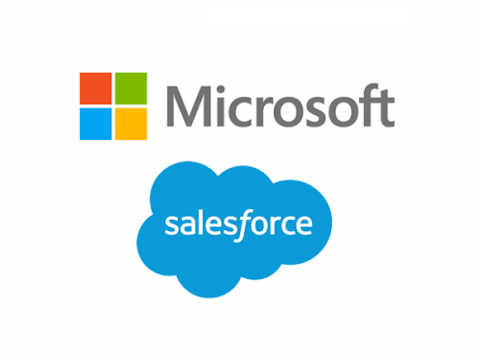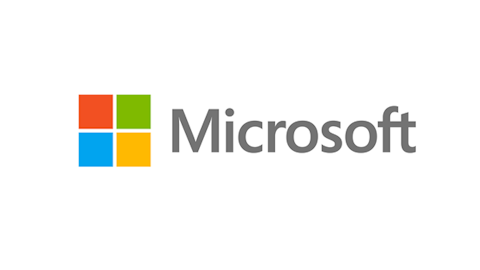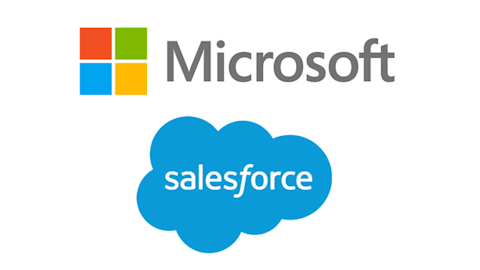Salesforce.com, Inc (NYSE:CRM) leads the $20 billion a year cloud CRM sector with a 16% market share. Given that Microsoft Corporation (NASDAQ:MSFT) has a goal of getting $20 billion in annual cloud revenues by 2018, many people thought that Microsoft would buy Salesforce. With over $90 billion in cash and cash equivalents, Microsoft could afford it. There would also be some synergy involved, as Microsoft could reduce Salesforce’s large marketing spend to pay for some of the premium. Yet despite the acquisition’s positive qualities, Reuters recently reported that Microsoft has no plans to acquire Salesforce, citing the company’s high valuation.

Microsoft’s no thanks to Salesforce.com, Inc (NYSE:CRM) shows that Microsoft Corporation (NASDAQ:MSFT) has changed for the better. The old Microsoft would have bought Salesforce, despite the fact that Salesforce trades for over 106x forward earnings. The old Microsoft has a history of bold acquisition offers. In 2008, Microsoft offered to buy Yahoo for $44.6 billion in an attempt to grab a larger share of the search market. In 2013, Microsoft bought Nokia’s handset business for $7.2 billion in an attempt to make Windows phone the third mobile phone platform. Many of Microsoft’s acquisitions have not worked out, as Microsoft has written down their value several quarters later.
Microsoft passing on Salesforce shows that the new Microsoft under Satya Nadella is financially responsible. Since Nadella became CEO, Microsoft has only made smart and tactical acquisitions. Nadella’s largest acquisition so far, Microsoft’s purchase of Minecraft, was bite sized at $2.5 billion, and fits in with Microsoft’s strategic purpose of extending its mobile phone and HoloLens products.
Microsoft new found financial wisdom is good for Microsoft shareholders. Now that a large chunk of Microsoft’s $90 billion won’t be wasted by a Salesforce acquisition, Microsoft has more money to increase the dividend yield of 2.6% and to do shareholder buybacks at a time when its valuation is still low. Microsoft Corporation (NASDAQ:MSFT) could also use the money to grow faster organically, by increasing R&D and marketing to ensure that its HoloLens product and other organic initiatives have greater resources. If HoloLens succeeds, Microsoft’s EPS will grow faster than just 10% a year. Given Microsoft’s compelling qualities, many large hedge funds such as Valueact Capital own Microsoft shares. In fact, Microsoft is one of the 10 most popular stocks among hedge funds. Following hedge funds can produce significant alpha. We have been forward testing the performance of the 15 most popular small-cap stocks among hedge funds since the end of August 2012. These stocks managed to return more than 132% over the ensuing 2.5 years and outperformed the S&P 500 Index by nearly 80 percentage points (read the details here).
Another positive for Microsoft passing on Salesforce.com, Inc (NYSE:CRM) is that the acquirer will become distracted with the acquisition. Some industry experts, including Oracle co-CEO Safra Catz, believe that the integration of Salesforce with the acquirer’s operations will be harder than expected and disrupt the sector. If this occurs, Microsoft could capture more market share without having to spend more on marketing.
With or without Salesforce, Microsoft’s future is secure. With its fast growing cloud division, Microsoft has successfully avoided the secular decline of the desktop computer industry. With HoloLens, investors have a future hit product to look forward to. With a forward PE of under 17, shares of Microsoft Corporation (NASDAQ:MSFT) are cheap and have considerable upside.




